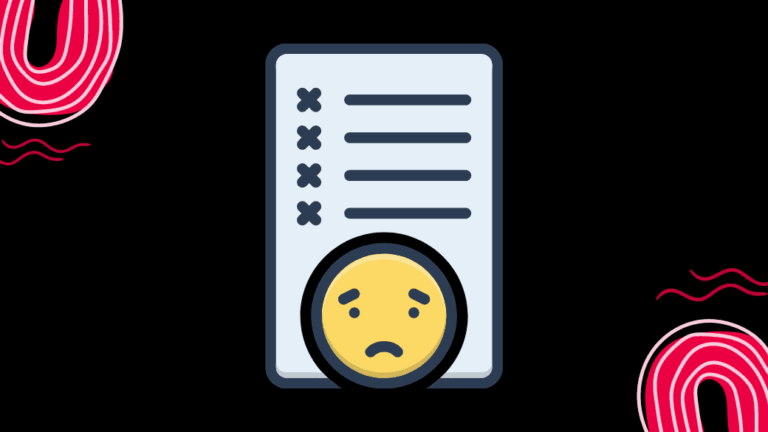How To Choose The Best Ecommerce Platform For Your Business
Choosing an eCommerce platform for your small business can seem like a daunting task, but it doesn’t have to be. In this article, we will look at some of the best eCommerce solutions.

by Chris Latham

Ecommerce platforms are a great way to sell your products online. Choosing the right eCommerce solution for your small business can be tricky, but it doesn’t have to be. In this article, we will look at some of the best eCommerce solutions for small businesses.
What is an eCommerce Platform?
An eCommerce platform is a web-based solution that enables you to build a complete digital storefront. You can use it to sell products, manage inventory, automate processes, and much more.
Ecommerce platforms are designed to help you grow your business, whether you’re just starting out or already established. They come with many benefits, including:
- Automation – Use prebuilt workflows to save time and money
- Inventory management – Track your inventory across multiple channels
- Marketing automation – Create automated email campaigns
- CRM integration – Integrate customer data into one place
- Analytics – Get real-time insights into how customers interact with your site
- Payment processing – Accept credit cards securely
- Shipping & fulfillment – Ship products anywhere worldwide
- Customer support – Have 24/7 access to live chat and phone support
Why You Need an eCommerce Platform and How to Choose the Right One
An eCommerce platform enables businesses to manage every aspect of their online store. From managing inventory, shipping, customer support, and payments to marketing campaigns and analytics, there are many different tools that come packaged together to make running an eCommerce store easy.
With over 4 billion people worldwide now owning smartphones, tablets, and computers, the number of consumers shopping online has increased dramatically. As a result, the value of eCommerce platforms has grown exponentially.

How to Choose an eCommerce Platform for Your Business
As a business owner choosing the right eCommerce solution for your online store can be a tricky task. There are plenty of different factors to take into account, including how much money your business makes, what type of products it sells, and whether you want a simple storefront or something more complex like a marketplace.
One of the first things to think about is your gross merchandise volume. This is basically the total amount of sales your business generates each month. A high GMV means that you’ll likely need a more robust platform than one designed for smaller businesses.
You’ll also need to make sure that the platform supports the features that you want, such as product listings, inventory management, shipping, and payments.
Beyond GMV, there are several other considerations to keep in mind. For example:
- Do you sell physical goods or digital downloads?
- Do you prefer a marketplace or a catalogue?
- What types of payment methods does your business accept?
- How many employees do you employ?
These questions will help determine what sort of features you’ll need in your eCommerce platform.
The good news is that most eCommerce platforms offer similar functionality across the board. The key here is finding the right combination of features for your needs.
Start by looking at some of the popular solutions out there, like Shopify, Bigcommerce, Magento, WooCommerce, Volusion, and others. Once you’ve narrowed down your list to three or four potential platforms, compare their prices and plans to find the best fit for your business.
Pay Close Attention to your Technology Stack
The first question you must ask yourself is whether you want to build a fully integrated eCommerce platform or something less complex. If you are looking for a simple shopping cart system, there are plenty of options out there. However, it is important to understand that most of those systems are built around a specific technology stack.
A technology stack is a set of technologies that work together to accomplish a particular function. For example, Magento uses PHP, MySQL, and Java, while Shopify uses Ruby, NodeJS, and MongoDB.
Simple eCommerce Platform
If you choose to go with the simple e-commerce platform route, you’ll have to decide if you want to manage the entire process yourself or outsource some of the work. There are many eCommerce platforms that offer managed services, so it’s worth looking into these options if you’re not comfortable with website development or marketing.
A Full eCommerce Platform
If you choose to go with a full-blown eCommerce saas platform, you will need to determine what type of platform will suit your needs. There are many different types of platforms available, including open source, proprietary, hosted, and cloud-based solutions.
Each of these platforms offers varying levels of functionality and flexibility. You will need to consider how much control over the platform you desire. Do you prefer to manage everything yourself or do you want someone else to handle things like inventory management, shipping, customer service, etc.?
This decision will affect the level of customization you can achieve. Ecommerce websites can be a challenge for small businesses, but with a little bit of research and planning, you can make it a success.

Features to Look for in an eCommerce Platform
Before choosing an e-commerce platform, you want to make sure that the platform and the plan you select have all the features you will need.
Don’t only think about features you will need today you want to make sure to think about those you will need in the future. Let me tell you, nothing is more frustrating and a pain in the neck than having to migrate platforms.
Here are some of the top features you should look for when selecting an eCommerce solution:
- Inventory Management – This feature allows you to track inventory from order to delivery. It also helps you keep track of stock levels and reorder points.
- Order Fulfillment – This feature allows you to store information about each individual product and its corresponding price. It also lets you create multiple warehouses and assign them to products.
- Shipping Options – This feature allows you to customize your shipping rates depending on where your customers live.
- Customer Service – This feature allows you to provide support to your customers via email, phone, chat, or even social media.
- Payment Gateways – This feature allows you to accept payments through credit cards, debit cards, PayPal, Google Wallet, Apple Pay, and more.
- Growth Capabilities – If you plan on growing in the future, then you need to find an eCommerce platform that supports growth. Some platforms allow you to add new features as needed. Others may require you to upgrade your current plan.
- Analytics – An analytics tool provides data on traffic patterns, sales trends, and other important metrics.
- Security – A secure platform means that hackers cannot access your site and steal your customers’ personal information.
- Customization – You don’t want to settle for just any old eCommerce platform. You want one that gives you complete control over the design and layout of your site.
- Design – You want a platform that looks good and makes shopping easy.
- Mobile Friendly – You want a mobile-friendly platform because most people shop online using their cell phones.
5 Factors To Consider When Choosing an eCommerce Solution
As a business owner choosing an eCommerce platform is one of the most important decisions you will ever make. It’s a decision that will affect every aspect of your online store, from its success to its longevity.
Here are five common mistakes to avoid when choosing an eCommerce platform for your local and online business.
#1. Focusing Too Much on Features
Features matter, but they shouldn’t be the sole determining factor when choosing an eCommerce solution.
For example, if you’re building a website that sells clothing, features such as inventory management, shipping, customer support, payment processing, and analytics aren’t going to be relevant.
Instead, focus on the key aspects of your business first, and then find an eCommerce platform that offers those features.
#2. Ignoring Security Issues
Security is another critical factor to consider when selecting an eCommerce system.
In addition to offering security features, you should also ensure that the software you select has been tested thoroughly against known vulnerabilities.
This means that the vendor has performed penetration testing and vulnerability assessments on the software to identify potential weaknesses.
#3. Forgetting About SEO
Search engine optimization (SEO) is another crucial consideration when selecting an eCommerce platform. This refers to the ability of your site to rank highly in search results.
When you’re trying to attract customers to your site, you want to make sure that your products appear near the top of search results.
A poorly optimized site won’t allow visitors to easily find what they’re searching for.
To optimize your site, you’ll need to perform keyword research and implement SEO strategies.
#4. Assuming That All eCommerce Solutions Offer Similar Functionality
eCommerce platforms come in all shapes and sizes. Some offer basic functionality, while others offer advanced features.
Before you choose an eCommerce platform, make sure you understand exactly what each feature does.
For example, is a shopping cart really necessary? If not, don’t bother paying for it.
#5. Thinking That Everything Will Be Easy
While choosing an eCommerce platform may seem simple, it isn’t.
There are dozens of factors to consider, ranging from technical issues to user interface design.
Make sure you spend adequate time researching the various solutions available.
Once you’ve narrowed down your list, test drive several of them to see which one works best for your needs.
Remember, you can always switch platforms later if you realize that you made a mistake. But doing nothing is a big mistake.

Here are some questions you need to ask your eCommerce vendor
Are you thinking about launching an online store? If so, you may be wondering whether you should go with an established platform or start from scratch.
There are pros and cons to each option, so let’s talk about the questions you should ask yourself before choosing one.
Here are 10 things you should ask your eCommerce vendor before signing up:
#1. Do They Offer Free Trials?
It’s common practice for vendors to offer a trial version of their software. This gives you the chance to test drive the program without committing to anything.
However, most trials come with limitations, such as a limited number of products, a limited amount of inventory, and/or a limited timeframe. Make sure you understand these restrictions before you sign up.
#2. What Features Does Their Software Provide?
Do they provide the features that you need? For example, does their software allow you to add multiple payment gateways? Can you customize your checkout page?
Make sure you know exactly what you’ll be using the software for before you invest any money.
#3. How Much Will I Pay Monthly?
How much will you pay monthly for the service? Some platforms charge a low monthly fee but then tack on additional fees for every transaction. Others charge higher monthly fees but don’t include transaction fees.
Before you sign up, find out how much you’ll actually be paying per month.
#4. What Type of Support Do They Offers?
Does your eCommerce vendor offer 24/7 support? Do they offer phone support? Email support? Live chat?
Find out what types of support you’ll receive before you sign up. You’ll want to ensure that you’ll have access to support whenever you need it.
#5. How Long Has the Vendor Been Around?
How old is your eCommerce vendor? There are plenty of newer companies out there, but some older ones still have years of experience under their belt.
Ask your potential vendor how long they’ve been offering services. You’ll learn a lot about their company by learning how long they’re been in business.
#6. What Kind of Training Do They Provide?
Some vendors offer free training, others charge a small fee. Find out what type of training they offer before you sign up. If you decide to purchase training, make sure you get value for your money.
#7. What Security Measures Does Their Platform Use?
What security measures does your eCommerce vendor use? Ask them about PCI compliance, encryption, and data storage.
#8. Who Else Uses Their Service?
Who else uses your eCommerce vendor’s service? Find out if anyone else has used their service before.
This information will give you insight into how well-known the vendor is.
#9. Do They Have Any Customer Reviews?
Customer reviews are a great resource for evaluating a vendor’s performance. Read customer reviews and see if they recommend the vendor.
#10. Is Their Website Easy To Navigate?
Is their website easy to navigate? Is it intuitive? Are there too many steps involved?
These are just some of the questions you should ask your eCommerce vendor.
Conclusion
In conclusion, choosing the right eCommerce solution for your business isn’t always easy. There are many different factors to consider when deciding which platform will work best for your needs. But if you take the time to research each option thoroughly, you should have no problem finding the perfect fit for your business.
FAQs for eCommerce Platforms
There are many different types of eCommerce platforms. Some offer features like inventory management, shipping options, customer support, payment processing, analytics, marketing tools, etc., while others focus on ease of use, security, and scalability.
Here we’ll answer some questions about how to choose the best eCommerce platforms for small businesses.
What are examples of the best eCommerce solutions?
- Adobe Commerce (formerly Magento)
- Big Cartel
- BigCommerce
- OpenCart
- PrestaShop
- Sellfy
- Shift4Shop
- Shopify
- Shopwired
- Squarespace
- Volusion
- Weebly
- Wix
- WooCommerce
- Zyro
The platform you choose should focus on creating an easy online shopping experience for you and your customers.
How do you evaluate eCommerce platforms which are best for your business needs?
There is no one-size-fits-all answer to this question, as the best eCommerce platform for your business will depend on a number of factors.
The first thing to consider is what type of products or services you will be selling. If you are selling physical goods, then you will need a platform that can handle inventory management and shipping integrations.
If you are selling digital goods or services, then your needs will be different. Make sure to choose a platform that can accommodate your specific product types.
What are the two types of platforms you can choose when starting out with e-commerce?
If you’re starting an eCommerce business, you’ll need to choose a platform on which to build your store. There are two main types of platforms: closed source and open source.
Closed Source Platform
Closed source platforms are those that come with a set of features and functionality that cannot be altered or customized.
This type of platform is often simpler and easier to use since everything is already set up for you. However, it can be more expensive and less flexible than an open source platform.
Closed source and hosted solutions include Shopify, Magento, BigCommerce, etc., which are all web applications that allow users to create stores from scratch.
Open Source Platform
Open source platforms give you more control over the design and functionality of your store. With an open-source platform, you can hire a developer to create a custom solution for you or choose
Open source and self-hosted solutions include WordPress, WooCommerce, Joomla!, Drupal, etc., which are software packages that enable users to build sites from scratch.
Both options offer similar features, such as payment processing, inventory management, product listings, customer support, analytics, etc. The choice between these two options depends on how much technical expertise you have and what kind of budget you have available.
What are the different types of eCommerce?
There are three main types of eCommerce: B2B, B2C, and C2C.
B2B means business to business, where two businesses sell each other goods and/or services.
B2C means business to consumer, where one company sells its products directly to consumers.
Finally, C2C means consumer to consumer, where two individuals sell each other goods and services.
Is eBay an eCommerce platform?
Yes, eBay is an eCommerce platform. The main difference between eBay and other platforms such as Amazon is that eBay has no minimum order size.
This means that anyone can start selling items on eBay regardless of how much they earn from sales. This would also fall under C2C.
What should be your primary concerns when searching for eCommerce hosting?
When searching for eCommerce hosting, your primary concern should be finding the best hosting option for your business. There are a few things to keep in mind when making your decision:
- Reliability
- Security
- Uptime
- Support
- Features
- Price
- Payment options
- Reputation
If you’re looking for a reliable web host, look at reviews from other customers who’ve used them. Also, check out the company’s website and ask questions about what they offer.






